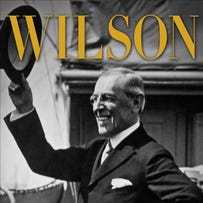Protectionism Means You Pay More For Books
 As you buy Christmas presents remind yourself that Federal Government policy requires you to pay up to 30 percent more for books, according to the Productivity Commission, than you would in an open market. When the Rudd Cabinet this year rejected the strong arguments of reform-minded ministers and dumped on the Productivity Commission’s report it meant local bookshops continued to be blocked from sourcing stock from overseas if an Australian publisher wants to publish it more expensively here.
As you buy Christmas presents remind yourself that Federal Government policy requires you to pay up to 30 percent more for books, according to the Productivity Commission, than you would in an open market. When the Rudd Cabinet this year rejected the strong arguments of reform-minded ministers and dumped on the Productivity Commission’s report it meant local bookshops continued to be blocked from sourcing stock from overseas if an Australian publisher wants to publish it more expensively here.
The justification is that this subsidises publishers and allows them to support Australian literature. Remove this restriction on bookshops and, the publishers argue, Australian literature would vanish in puff of smoke.
Many readers might have trouble nominating any especially illuminating works appearing in the last year that would justify the one third impost on their Christmas book-buying. But there’s a more potent objection to the publishers’ naked self-interest : ask them to nominate a single work by an Australian author they brought into print not because they thought it would sell but because publication would keep our culture alive.
They have never been able to nominate a single title.
They used the same desperate argument before the mid-1990s to justify blocking American books entering Australia. We had to wait until a British publisher got around to bringing the American title into print before we could get the book -say, a biography of Eleanor Roosevelt – into bookshops here. The Keating government at least got rid of that restriction partly at my urging (a long time, incidentally, before I joined the board of Australian-owned retailer, Dymocks).
We opened the music market. The result has been cheaper CDs and more Australian music being recorded and sold than ever. It’s the old story : protection in the end hurts everyone. Cheaper books will mean more sales and that means – for authors – more royalties.
Comments are closed.

There are certainly books that are being published that couldn’t be if publishers didn’t have another source of income. Peter Carey underwrote most of UQP’s publishing list for years, being the single author who kept UQP in the black.
And it’s not so much about publishing titles that contribute to Australian culture but don’t sell (after all, these titles would have limited impact), it’s about having the security to take risks.
And then there are educational publishers. Without a secured market, cheaper overseas imports from Asia have the potential to devastate the local market. Local publishers cannot compete with Asia on price. Perhaps some would argue there is no need for local editions or local content, but what a pity that would be. And some of our Australian textbooks that have been adapted around the world may never have been published in the first place.
You know I would be the first to agree that protectionism can be a bad thing. However the problem appears to be that those calling loudest for its abolition certainly have not given positive proof that this would lead to cheaper prices or to anything but the Americanisation of your books. For example, the large chain vocal in leading the campaign for the abolition of theis local protection… was, at the very time they were telling the people that they were forced to charge outrageous prices by this policy… buying remaindered books – including by an Australian author (ie. very very cheap, and the author does not get any royalty payment) and selling them at full normal price here. As a second case: At Worldcon in Melbourne various booksellers had their shingles up, and were asked if, for a forthcoming conference, they would order books from the Australian guest author, and possibly arrange signings. The only people not in the least interested were… the large chain bookstore that was vocal in their support for doing away with protecting the local industry. So perhaps a more convincing argument could be made for the abolition IF large bookstore retail showed that profiteering was not their driving motive – and that books would get cheaper, and not just them get richer at the expense of local publishing and authors. For example when a bookstore orders one of my books from the US – I get 64 cents, which is a ridiclous 8% of the cover prioce in the US. That is not as ridiculous as the 3% of cover price the author gets from the Australian cover price. At least when it is local book sold locally that 8% remains 8%. Australian chain retail needs to establish that it has interest in local authors, and is prepared to treat them fairly. What has chain retail done to keep local culture alive? Filled bookshelves with toys from China? Or had local authors doing readings and signings? I am afraid large retail has a serious image problem with authors, and will not get their support (which means their readership’s support) until they change their attitude.